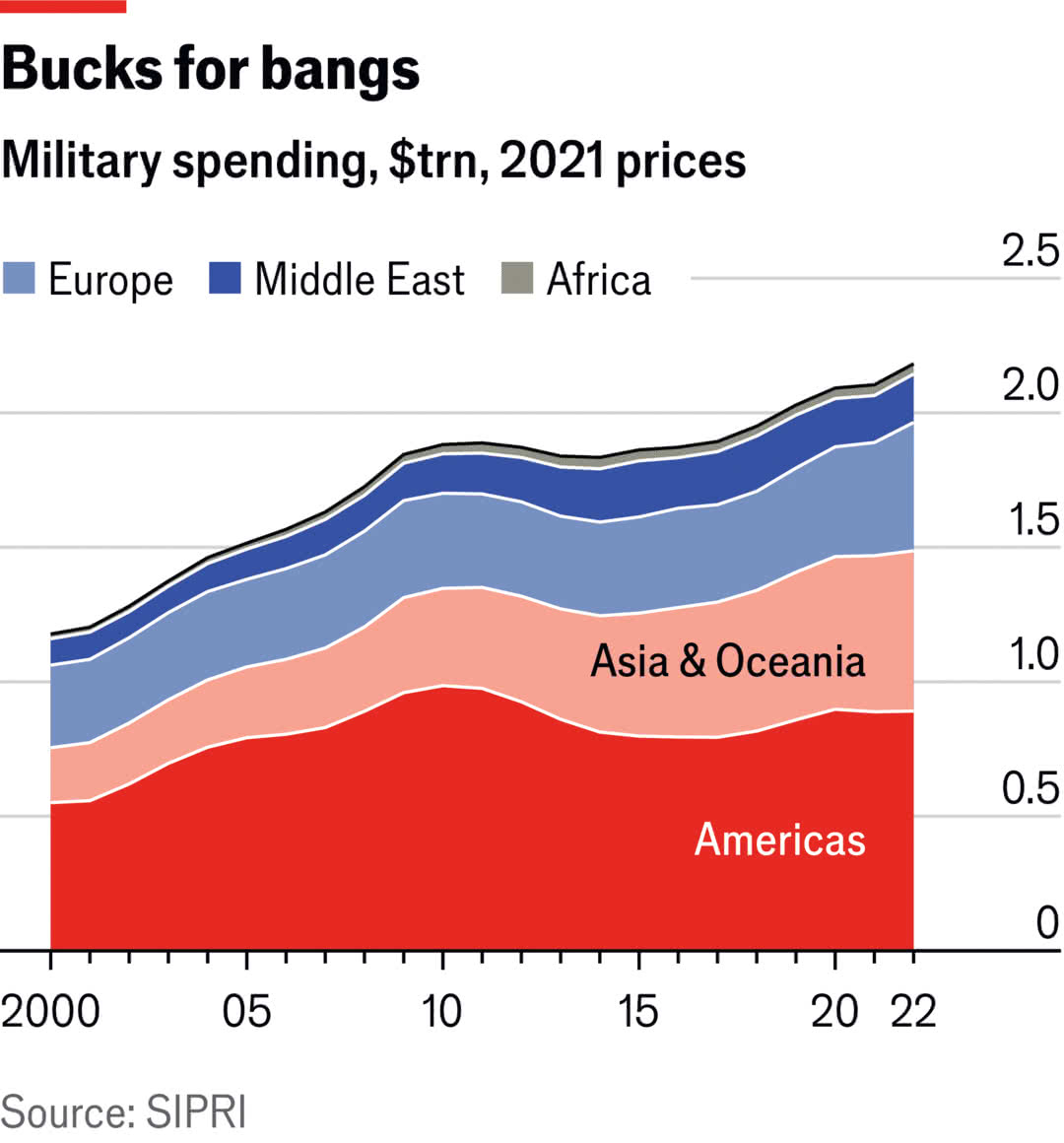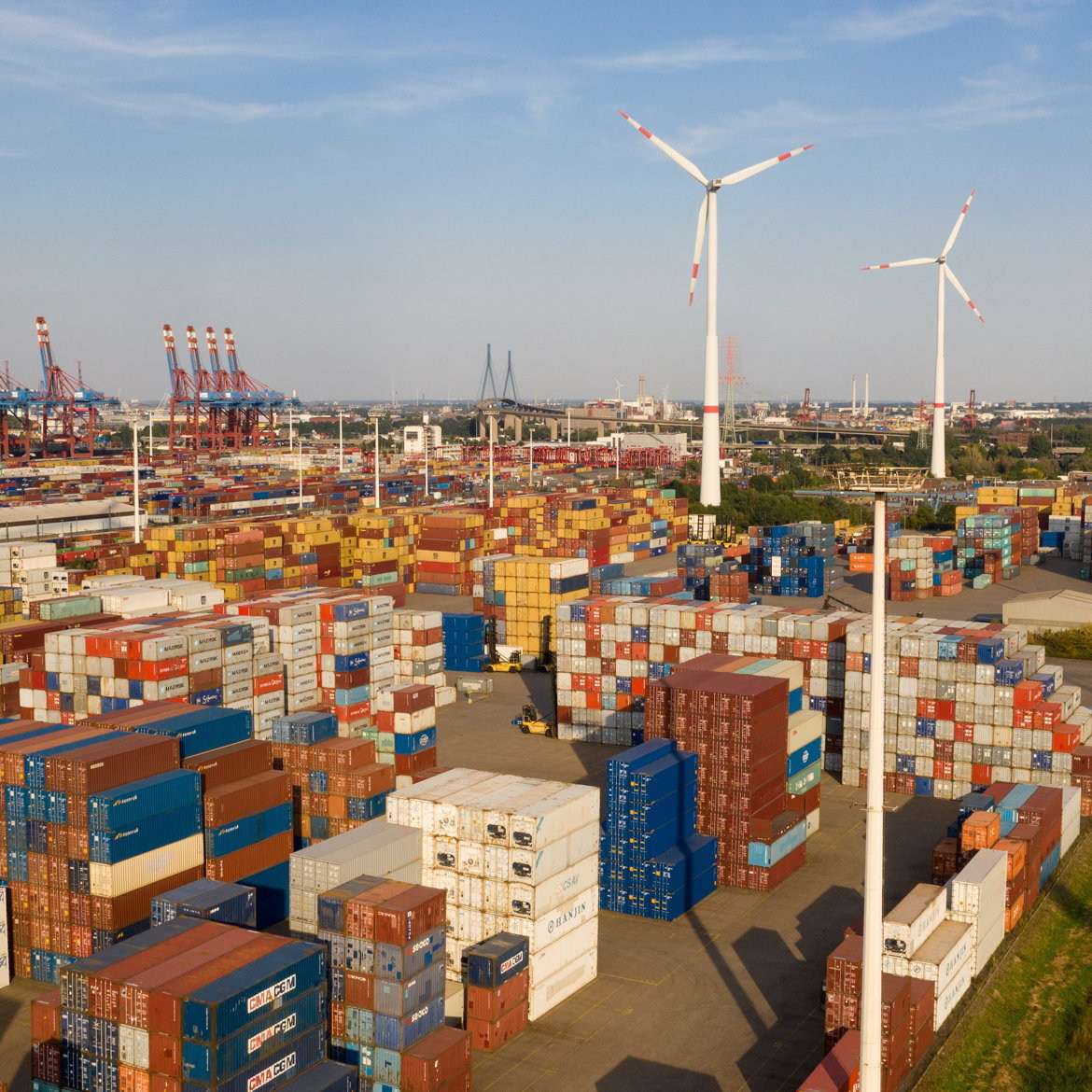America’s national security advisor, Jake Sullivan, said its forces planned to carry out more strikes on Iran-linked targets in the Middle East, to send a “clear message” that it would respond to attacks on its forces. Mr Sullivan’s comments follow American and British air strikes on targets linked to the Houthis, an Iran-backed Yemeni militant group that has attacked ships in the Red Sea in recent months. America also hit Iran-linked targets in Iraq and Syria on Friday night, in retaliation for the killing of three American soldiers in a drone attack in Jordan on January 28th.
Protests broke out in Senegal after the president, Macky Sall, called off the country’s presidential election, due on February 25th, citing disagreements over the eligibility of several opposition candidates. Anta Babacar Ngom, one opposition contender, was reportedly detained near a demonstration, as police fired tear gas at protesters in Dakar, the capital. France and the EU called on Mr Sall, who is not running for a third term, to swiftly set a new date.
Osama Rabie, the chairman of the Suez Canal Authority, said that revenue from the Egyptian waterway had almost halved in January, to $428m compared with $804m a year previously. Traffic was down by 36%. Global shipping companies have rerouted their services as Yemen-based Houthi militants escalate their attacks on ships in the Red Sea. The disruptions are piling pressure on Egypt’s economy, already in dire straits.
Fatih Karahan, the new governor of Turkey’s central bank, said he was ready to maintain the “necessary monetary tightness” to bring down the country’s rampant inflation, which was at an annual rate of nearly 65% in December. The bank bumped up its benchmark interest rate again, to 45%, in January. Mr Karahan served as deputy to Hafize Gaye Erkan, who quit as governor on Friday.
Nangolo Mbumba was sworn in as Namibia’s president, following the death from cancer of Hage Geingob, who had been in power since 2015. Mr Mbumba, who had served as vice-president since 2018, will hold the presidency until the election in November. Mr Mbumba’s Swapo party has been in power since Namibia declared independence from South Africa in 1990.
At least 64 people were killed in forest fires in Chile’s coastal tourist region of Valparaíso. The president, Gabriel Boric, declared a state of emergency and deployed military units to affected areas, amid fears that the fast-moving fires could spread to urban zones. The blaze was exacerbated by unusually high temperatures, and spread quickly through the drought-stricken region.
A Russian cosmonaut broke the record for the longest period spent in space by a human. Oleg Kononenko has been in orbit, roughly 423km from the Earth, for 878 days, according to Roscosmos, Russia’s space corporation. He beat a record set by Gennady Padalka, another Russian, in 2015. Mr Kononenko, who is 59 years old, has no plans to return to Earth yet. He may remain in orbit until late September.
Figure of the day: 15%. Support in polls for Germany’s ruling Social Democrats, down from a peak of 28% in 2021. Read the full story.
In the run-up to America’s presidential election, we’ve launched The US in brief—a daily update to help you keep on top of the political stories that matter. Sign up here to receive it as a newsletter.

Blinken is back in the Middle East
This weekend America carried out more air strikes in Iraq, Syria and Yemen, all of them aimed at various Iran-backed militias that have attacked American troops in recent months. Joe Biden insists that he wants to avoid another war in the Middle East. But like the proverbial frog in a pot of boiling water, America finds itself ever-more immersed in the conflict.
From Sunday to Thursday this week Antony Blinken, America’s secretary of state, will be on his fifth visit to the region since Hamas’s attack in October. In Egypt, Israel, Qatar, Saudi Arabia and the West Bank, Mr Blinken will seek to negotiate a pause in Israel’s war in Gaza—and, perhaps, the wider regional chaos. But Israel remains noncommittal. On Sunday its prime minister, Binyamin Netanyahu, said his government would “not agree to every deal, and not at any price”. Hamas, too, is divided about whether to accept any agreement. Like the war in Gaza, diplomacy has also reached an impasse.

Samsung’s boss faces justice, again
After nearly three and a half years of hearings a South Korean court will finally pass judgment on Lee Jae-yong, scion of the Samsung family, on Monday. Mr Lee is accused of stock-price manipulation and accounting fraud relating to the merger of two Samsung subsidiaries, Samsung C&T and Cheil Industries, in 2015. Prosecutors have asked for a five-year prison sentence and a 500m won ($373,000) fine. (He denies all charges.)
But even a guilty verdict might not mean Mr Lee spends much time behind bars. In 2017 he was found guilty of bribing an associate of South Korea’s then-president, Park Geun-hye, to facilitate that same merger. He found himself in and out of prison as appeals, a retrial, parole and an eventual pardon took their course; in the end he served only 19 months of his five-year sentence. If convicted again Mr Lee will probably appeal, confident that he can wriggle his way out again.

A show of force in the desert
Russia’s invasion of Ukraine, and rising tension in the Indo-Pacific caused by China’s growing military might, have boosted demand for weapons. The second biannual World Defence Show takes place this week in Riyadh. More than 750 defence companies will be exhibiting their wares to over 100,000 trade visitors and around 115 national delegations. In 2022 contracts worth a total of $8bn were inked during the show. The theme of this year’s exhibition is investing in new technologies. Such investment will almost certainly push deal-making beyond the level of 2022.
According to SIPRI, a think-tank that monitors the arms trade, global military expenditure rose by 3.7% in real terms in 2022, to reach a record high of $2.2trn. Military expenditure in Europe rose by 13% in that year—the largest annual increase in the post-cold-war era. Defence businesses can count on bulging order books for years to come.


Can German trade bounce back?
Germany needs some good news. Might new trade figures, published on Monday, provide some? November’s numbers were better than forecast: exports rose 3.7% compared with October while imports were up by just 1.9%. That lifted the trade surplus to €20.4bn ($22.1bn) in November, or about 0.5% of GDP.
This was a welcome fillip for an economy staving off a recession. Industrial orders have decreased for the last two years, and no rebound is in sight. The ongoing war in Ukraine, and the strife in the Middle East, are clouding the picture for Germany’s exporters. Thanks to Houthi attacks traffic through the Suez Canal, a pivotal artery of global trade, has fallen by more than 45% since the start of December, disrupting supply chains. Positive trade figures could provide some temporary relief—and distraction, as the country faces some of its biggest protests in decades, against the far right.

The next steps for prosthetics
Prosthetic-makers have traditionally sought to mimic the limb that is being replaced. But recent developments in neuroscience suggest there is no reason why prosthetic limbs need look or behave like biological ones. Tamar Makin, a researcher at the University of Cambridge, suggests that the brain does not interpret prosthetics as natural bodily bits, nor as something closer to a tool, but instead puts them in a “category entirely of their own”. That holds whether the prosthetic is cosmetic, designed to look like an organic hand, or functional, from a sophisticated robotic limb to a simple hook.
Dr Makin’s findings are good news for innovators, who may want to experiment with new materials, colours and forms. But a further implication is that prosthetics could become more than just replacements. Scientists could potentially augment existing bodies with new capabilities. Designers are already experimenting with tentacles, spikes and third thumbs.
'The World in Brief - with vocab.' 카테고리의 다른 글
| Feb. 20 update (0) | 2024.02.20 |
|---|---|
| Feb. 11 update (0) | 2024.02.11 |
| Jan 30 update (1) | 2024.01.30 |
| Jan 22 update (0) | 2024.01.22 |
| Jan 16 update (0) | 2024.01.16 |